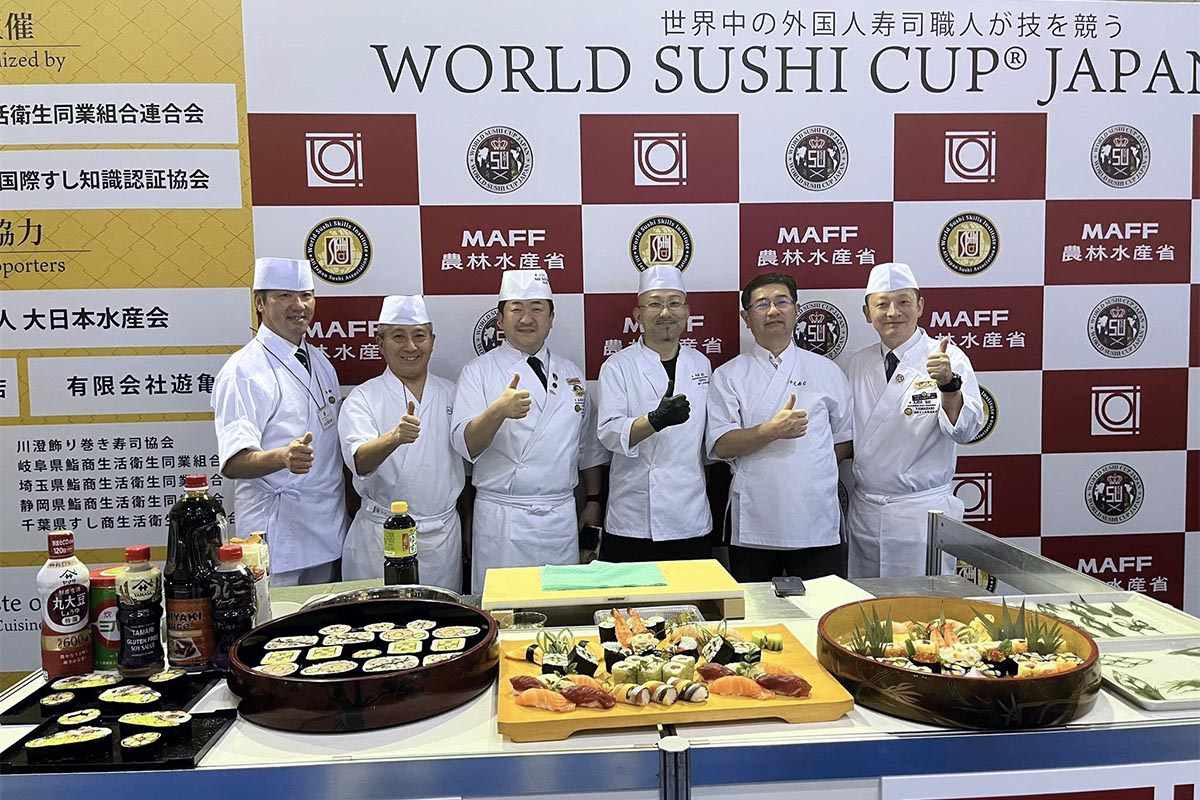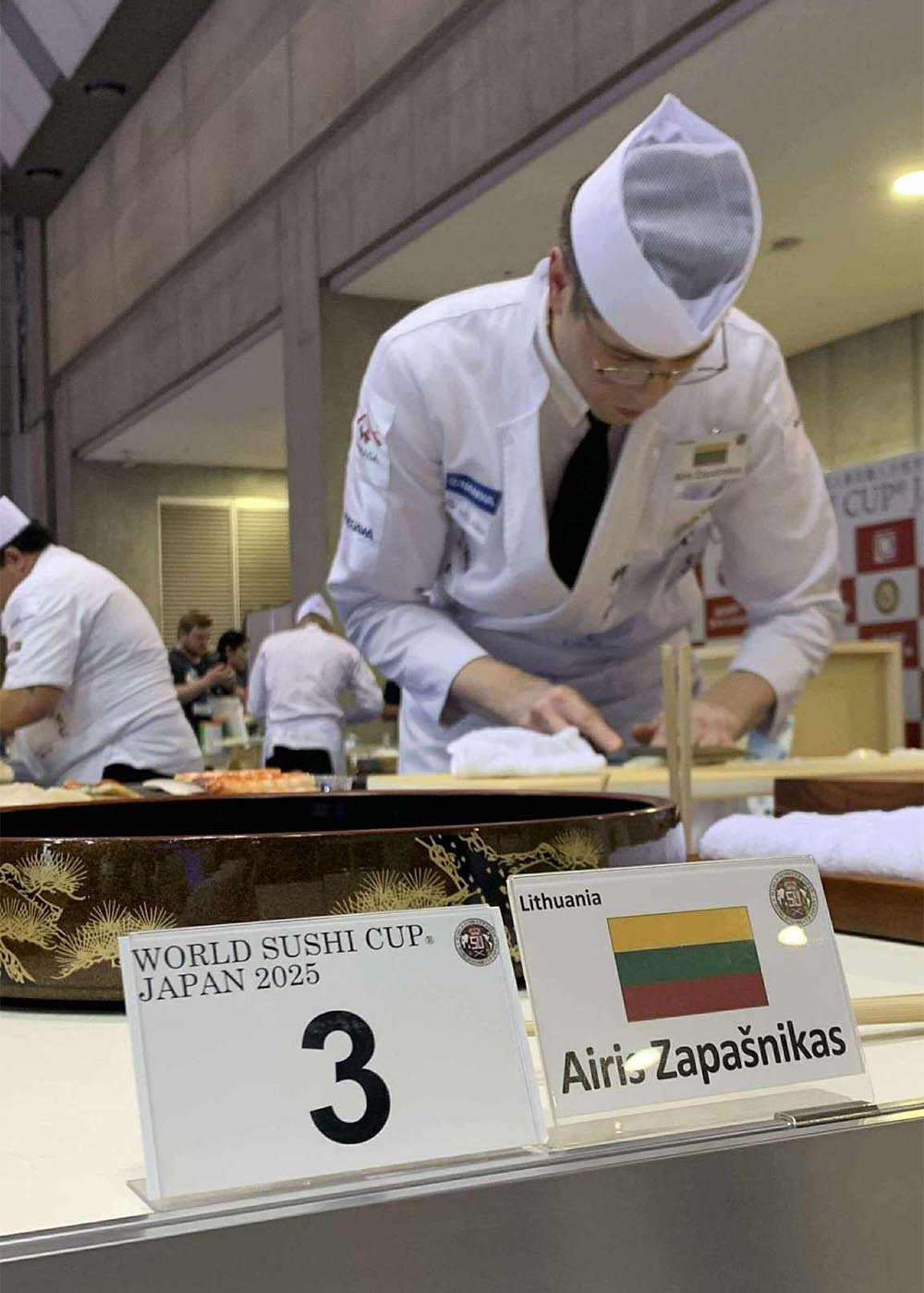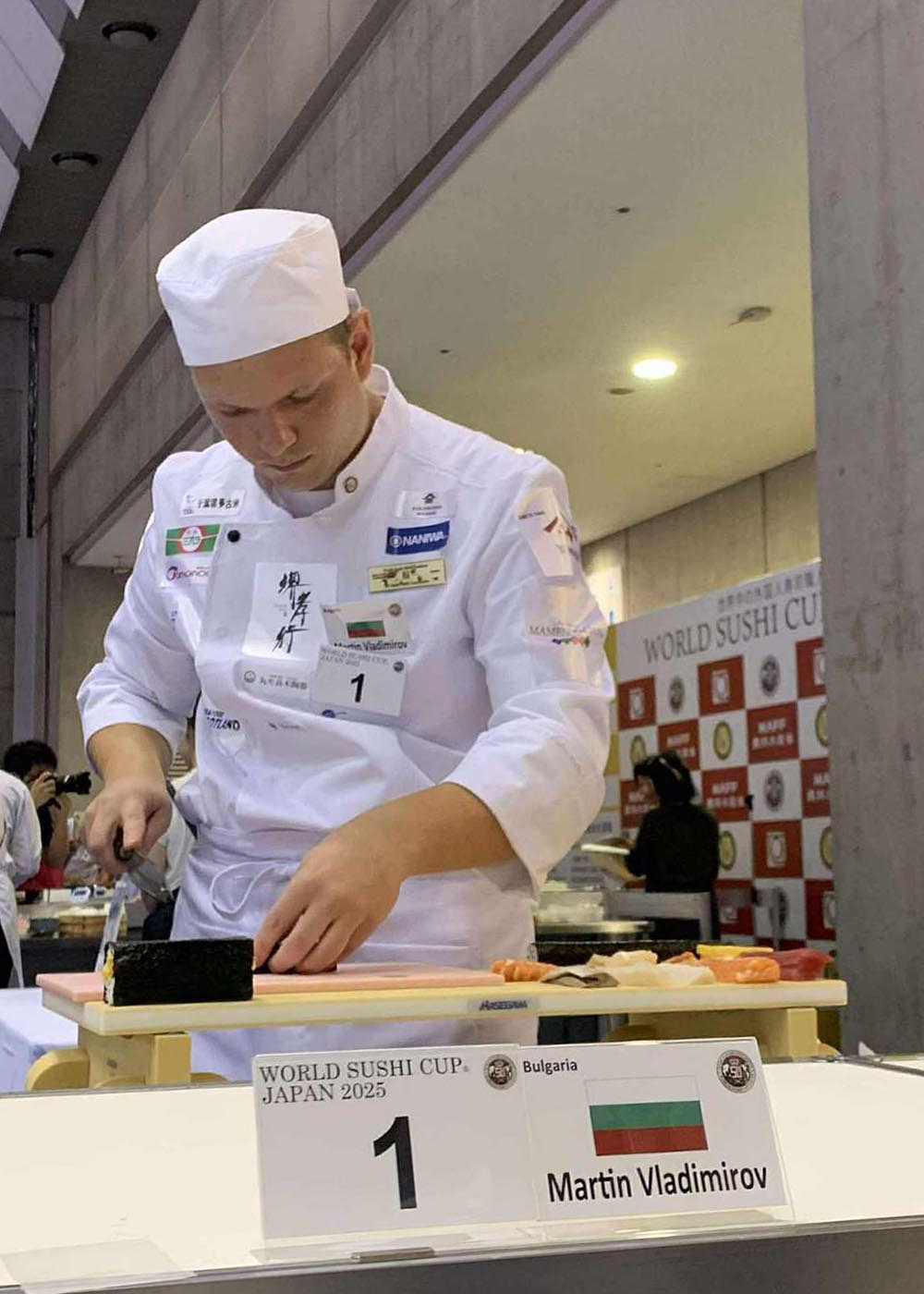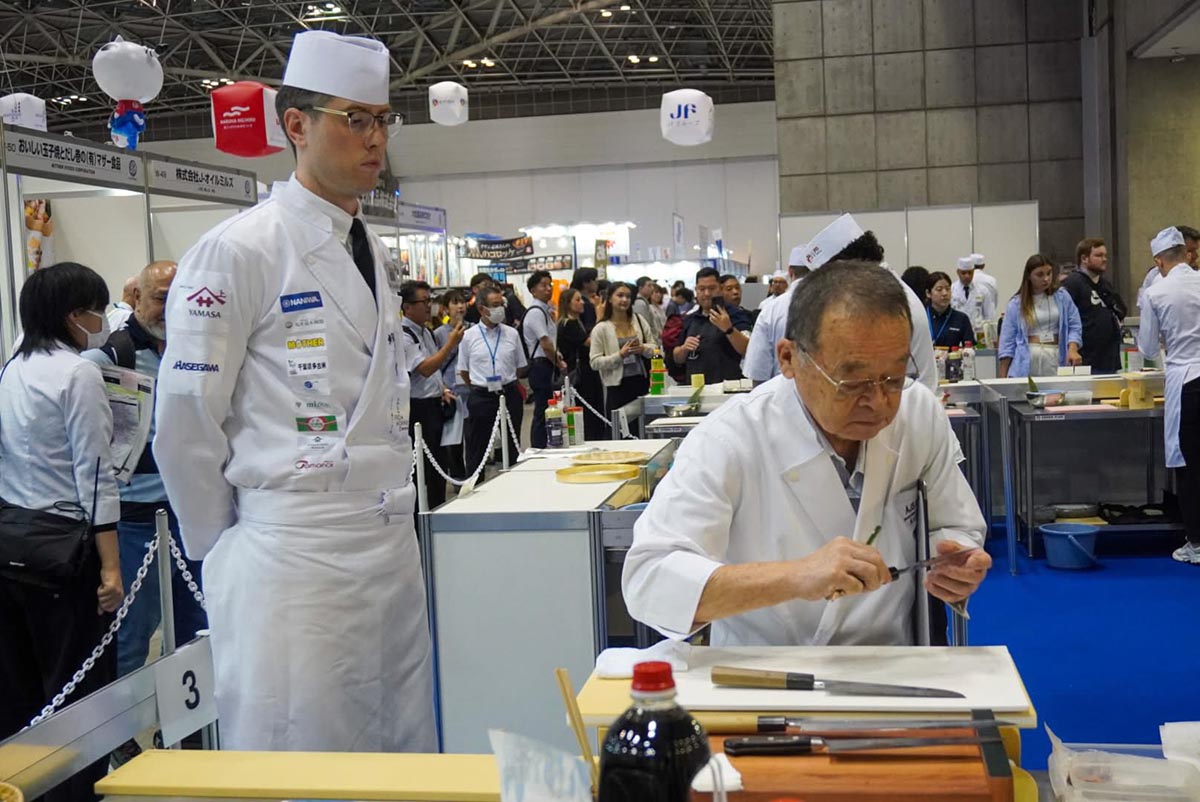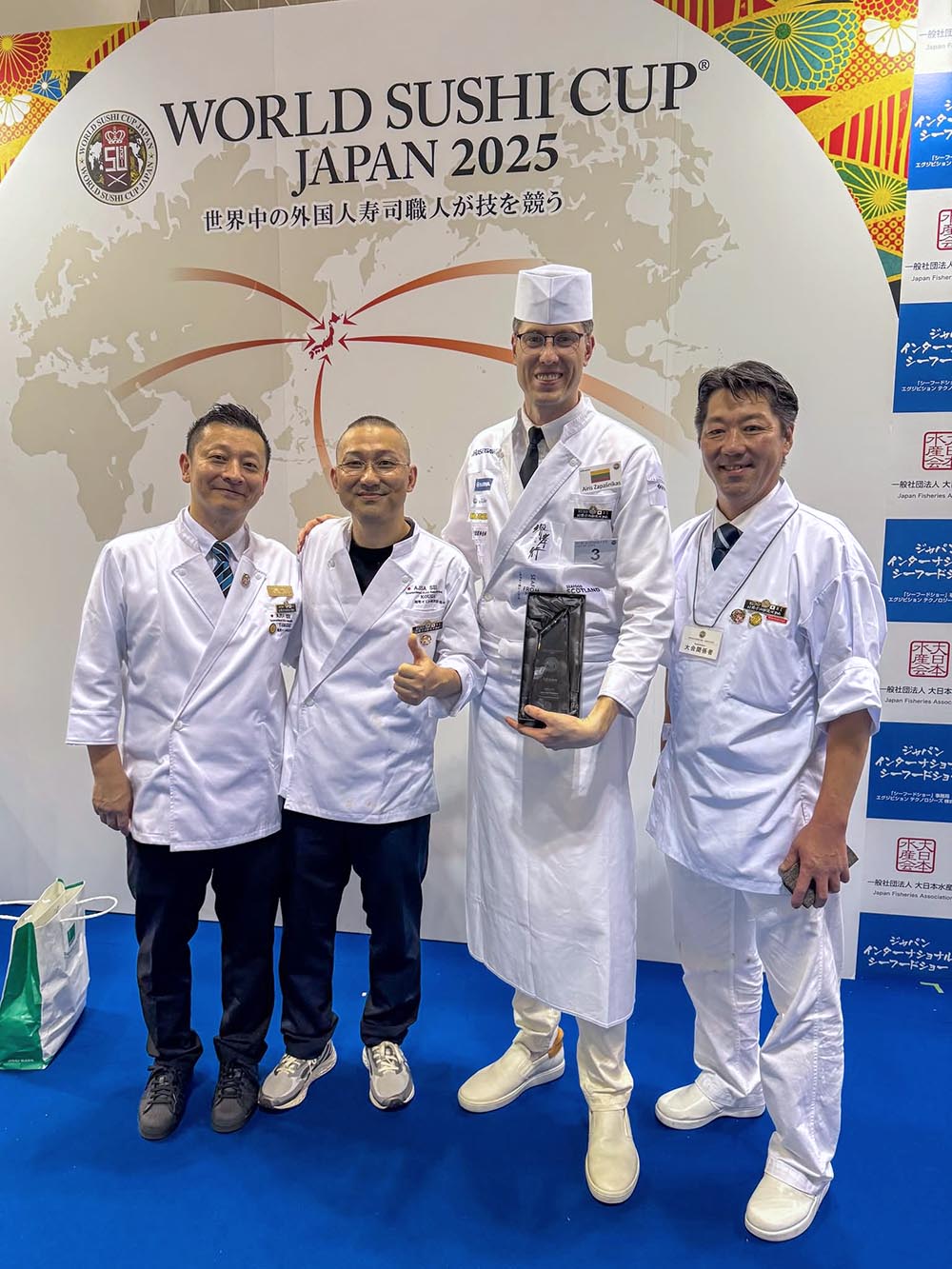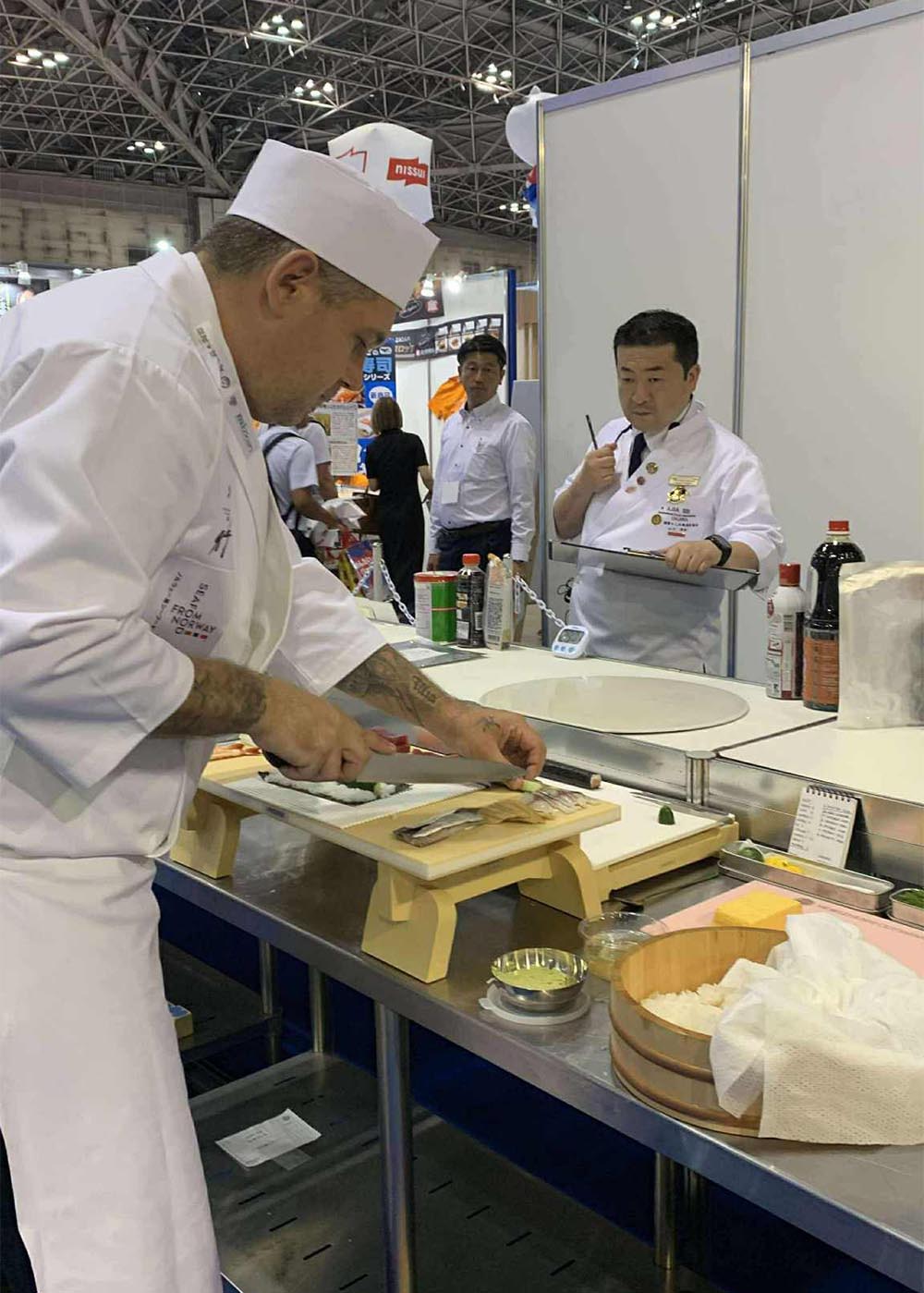Every August in Tokyo, tradition finds a new rhythm. The World Sushi Cup® Japan, held this year from August 19–22 at the Japan International Seafood & Technology Expo, isn’t just a culinary competition — it’s a global stage where non-Japanese chefs reimagine an art form steeped in centuries-old precision.
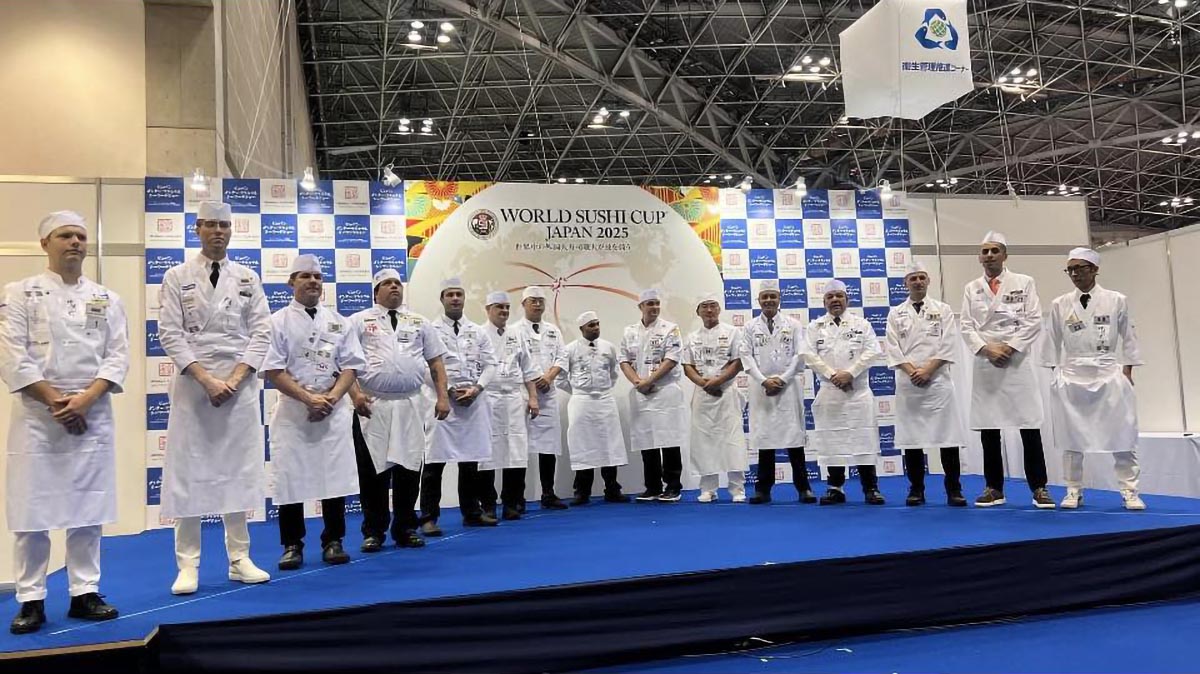
Numerous countries sent their best to the 2025 edition, with chefs competing in a tightly wound sequence of rounds: from the Edomae Sushi Open Competition to the Creative Sushi Final. The event is organized by the Japan Sushi Federation in collaboration with the World Sushi Skills Institute. To even qualify, entrants had to prove years of experience and mastery through a gauntlet of seminars, exams, and screenings conducted by the World Sushi Skills Institute — the only body of its kind backed by the Japanese government.
But before we get to the global flair, it’s worth pausing on the roots — because in Japan, sushi isn’t just food. It’s legacy.
Tradition isn’t fragile — it’s foundational
Sushi, in its homeland, is far more than a culinary export. It’s a refined discipline rooted in Edo-era technique, a craft passed down through years of apprenticeship and daily repetition. From the sharp angle of a knife to the silence between service, everything is intentional in this near-spiritual craft. Methods are passed down like family heirlooms, and apprenticeships can span years before a single nigiri is served to customers. This reverence for tradition is deeply embedded — it is not just practiced, but felt.
Yes, sushi began in Japan. But at the World Sushi Cup®, it becomes a cross-continent conversation — one that spans borders, languages, and culinary philosophies.
That high regard carries into the competition itself. The World Sushi Cup® 2025 isn’t built for show — it’s built for precision. Chefs are judged on exacting standards: time limits down to the second, spotless hygiene protocols, calm body language, and total ingredient control. A single misstep — a wasted cut of fish, a stray drop of blood, even a hurried gesture — can cost valuable points or lead to disqualification.
So when a competition like the World Sushi Cup® 2025 opens the door to non-Japanese chefs, it isn’t about diluting the art — it’s about honoring it through global fluency. It raises the bar for authenticity outside Japan, while giving space for new interpretations that still respect the soul of sushi.
The event’s underlying spirit is clear: it pivots on cultural craftsmanship that transcends borders. In a world where culinary appropriation often sparks debate, the World Sushi Cup® 2025 flips the script — inviting chefs to not only respect the craft, but to continue writing its story.
A Lithuanian first, a global statement
When Airis Zapašnikas, a Lithuanian chef based in Oslo, stood on the winner’s podium in Tokyo this past August, it wasn’t just a personal triumph — it was a statement on how far, and how meaningfully, sushi culture has traveled.
“For me, as a sushi chef and the first Lithuanian to achieve such a result, it carries great meaning,” Zapašnikas told LRT.lt. “It is a direct recognition of my abilities as a sushi chef. I would even say it means more to me than my restaurant being awarded a Michelin star.”
Zapašnikas trained daily for six weeks, and while other visitors to Tokyo were hitting up shrines and sushi bars, he was locked in—analyzing last year’s winners, consulting former champions, and refining every flick of the blade. “I didn’t visit a single tourist spot,” he said. “My only goal was to perform as well as possible.”
The pressure was high. In the traditional Edomae round, points could be lost for waste, injury, or a single untidy motion. “They look at details you might not even think of – whether your uniform is clean and tidy, or whether your movements are calm and confident,” Zapašnikas explained.
And when the final round arrived — the Creative Sushi Competition — innovation took the stage. That’s where Zapašnikas showed his edge. And the judges, some of the most revered sushi masters in Japan, took notice.
When innovation tastes like home
While the winning dish took top honors for its mastery and execution, one of the most memorable moments came from Martin Vladimirov of Bulgaria — who earned the Creativity Prize for a dish titled “The Valley of Roses.” It was an edible metaphor for cultural bridge-building: delicate Japanese technique fused with the emotive soul of Bulgarian heritage. The presentation was accompanied by the haunting folk song ‘Izlel e Delyu Haydutin,’ adding a deeply emotional layer to the cultural symbolism of the dish.
Shared by the Bulgarian Embassy in Tokyo, Vladimirov’s win marked a historic debut for Bulgaria on the global sushi map. “A meeting of Japanese purity and the Bulgarian soul,” the embassy wrote — and really, that’s the essence of the World Sushi Cup® 2025.
Vladimirov’s entry stood out not just for its symbolism, but for its technical execution — seamlessly incorporating rose essence, a nod to Bulgaria’s national flower, into the sushi’s flavor profile. His plating referenced traditional Japanese aesthetics while weaving in visual motifs from Bulgarian folklore. It was a sublime standout, showing that creativity isn’t always about bold reinvention — sometimes, it’s about finding the emotional thread between two worlds.
Scenes from the World Sushi Cup® Japan 2025 at Tokyo Big Sight — a vibrant celebration of global talent, precision, and culinary artistry, where top chefs from around the world competed in the ultimate showcase of sushi excellence.
Tradition meets a global remix
Yes, sushi began in Japan. But at the World Sushi Cup®, it becomes a cross-continent conversation — one that spans borders, languages, and culinary philosophies. From sashimi precision to seaweed creativity, the competitors are not simply borrowing from Japanese culture — they’re contributing to it. Expanding it. Energizing it.
And in a world that could use more shared tables and fewer walls, that’s a legacy worth slicing for.

